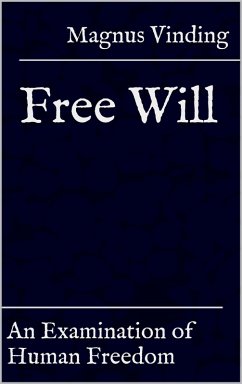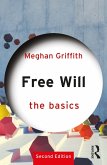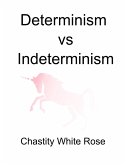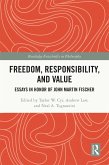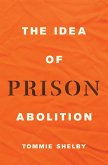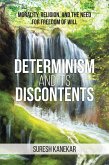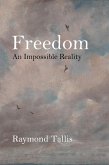Not many questions can excite people more than this one, and for good reasons. Our ideas about our own freedom influence some of the most important aspects of our lives, from our political decisions and legal practices to our personal motivations, choices, and actions.
The goal of this short book is to address the problem of free will. This goal is not pursued by reciting the history of the problem. Instead, it is pursued by approaching the problem directly and analytically: by defining a variety of freedoms that are often conflated. This lays the foundation for a focused discussion that arrives at clear conclusions about human freedom.
This revised edition contains a new afterword that touches on the contemporary debate over free will. It outlines some common points of confusion in this debate, and compares the respective views of Daniel Dennett and Sam Harris. Additionally, this latest edition features three new essays that further explore some of the nuances and core tensions in the free will debate.
From the conclusion of the book:
Can we make choices?
Yes, we both can and do make choices. We can consider different possible actions and pick one among them. It is true that our choices emerge from prior causes, but this does not mean that we do not make choices, nor that we have no good reason to make good choices, which we do, since our choices indeed do have an impact in the world.
Can we be said to be free in any way if our actions emerge from prior causes?
Yes. We can be said to be free in the sense that we can act according to our own intentions within a range of possible actions. This is the freedom we by definition want to have, and it is a freedom that we can increase, since the range of actions we can perform can be expanded. Furthermore, we can also be said to have a certain freedom of intention, in that our intentions are not narrowly constrained by our genes. We are uniquely free in these ways, not because we are unmoved movers, but rather because we have developed the kinds of tools that enable these freedoms and abilities.
Can we meaningfully reward and punish people for their actions?
Yes. Reward and punishment are practices that influence the way we act, and it thus makes sense to reward and punish people. Punishment, reward, and other kinds of incentives are therefore not undermined by the knowledge that our actions emerge from prior causes. Indeed, a better understanding of the main influences on our actions will likely enable us to improve our practices of punishment and reward.
Can there be any morality if we do not perceive ourselves to be unmoved movers?
Yes. We need not delude ourselves about what we are, nor about the origins of our actions, in order to create a better world. Quite the contrary.
Dieser Download kann aus rechtlichen Gründen nur mit Rechnungsadresse in A, B, CY, CZ, D, DK, EW, E, FIN, F, GR, H, IRL, I, LT, L, LR, M, NL, PL, P, R, S, SLO, SK ausgeliefert werden.

